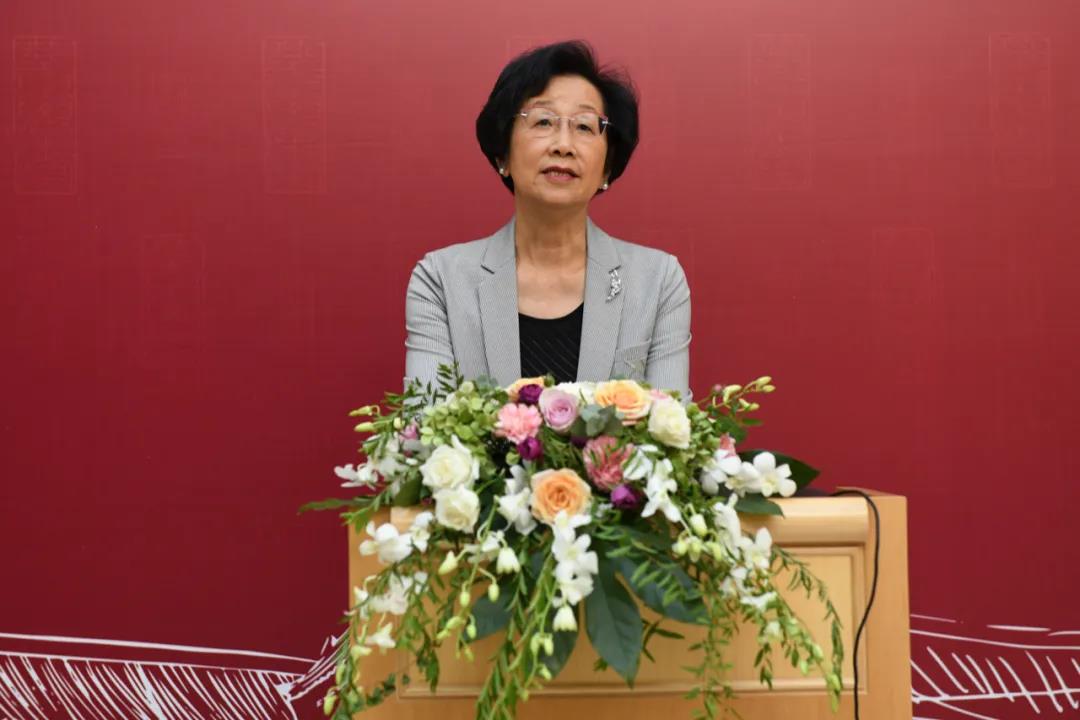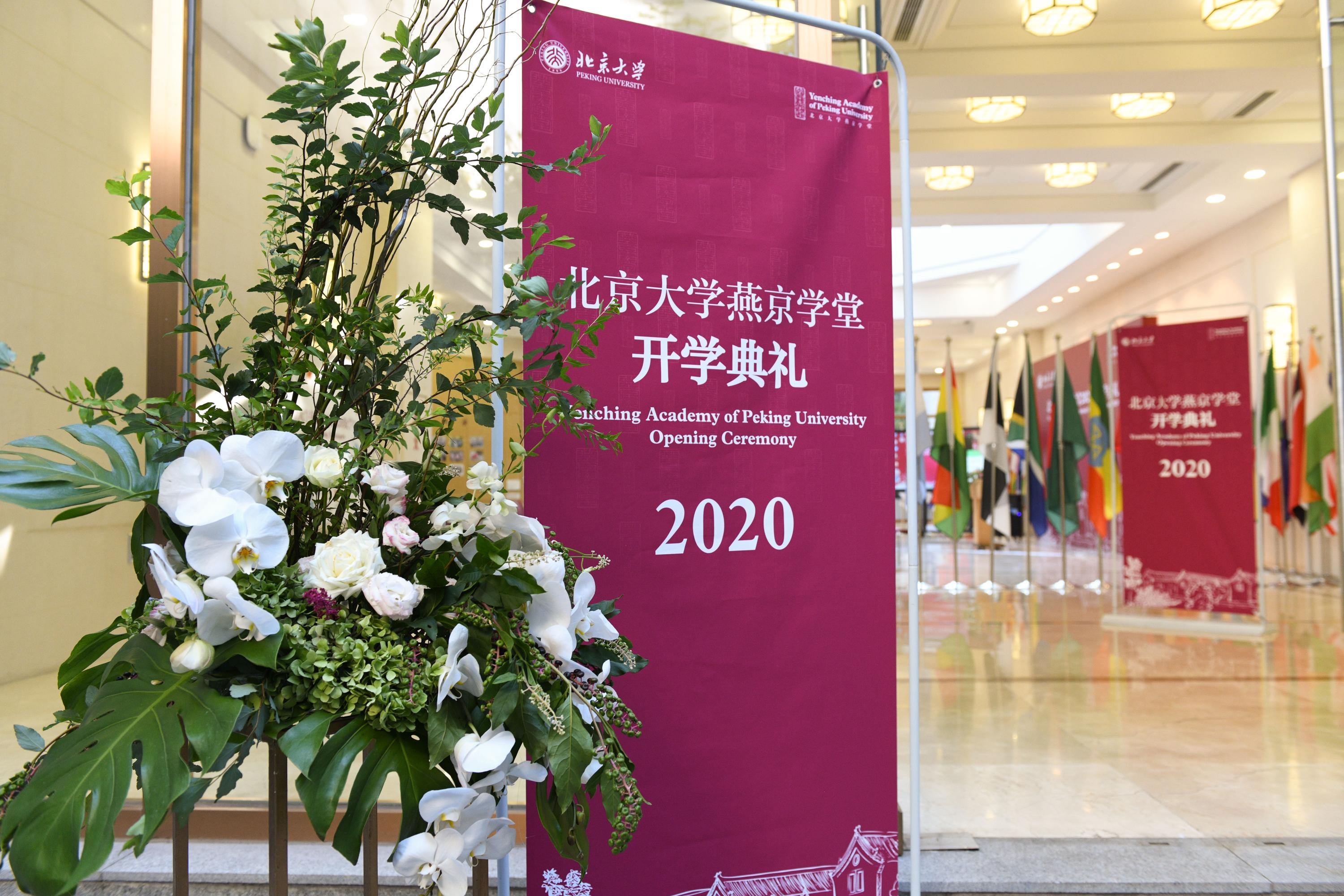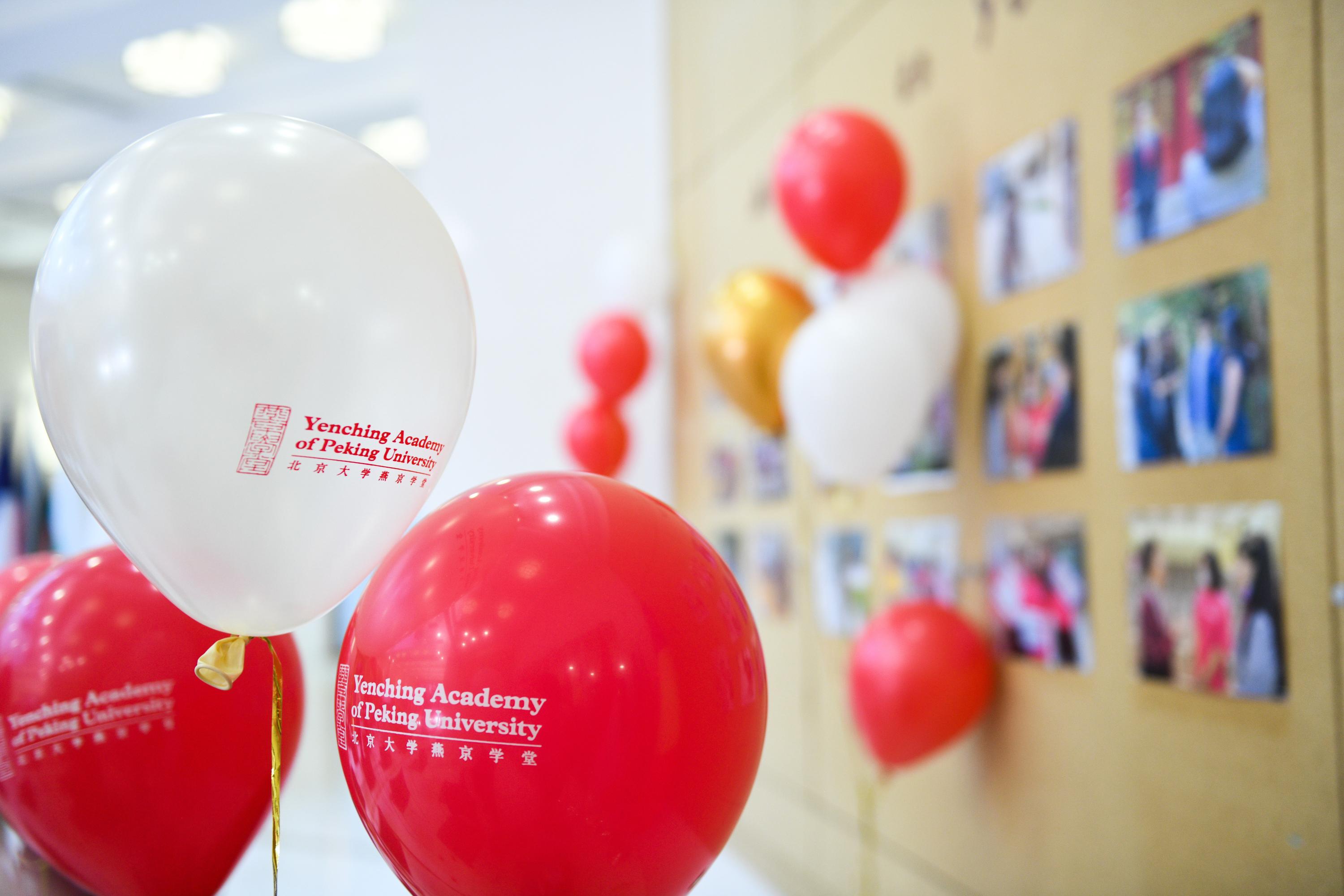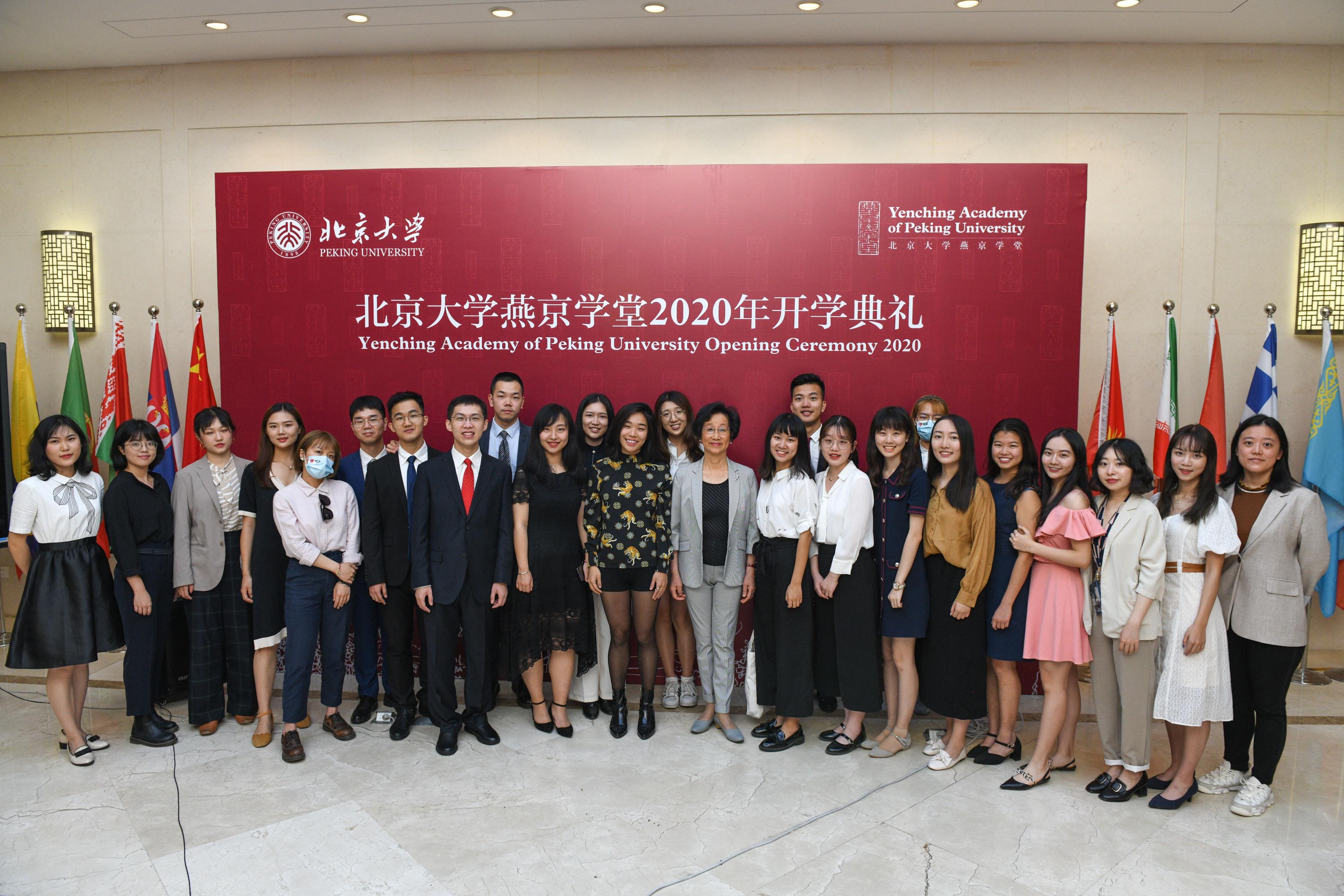Speech by Dean Yuan Ming at the 2020 Opening Ceremony of Yenching Academy
Sep 23, 2020
Dear Members of the Yenching community—faculty, staff, alumni and friends—please join me to extend our warmest welcome to the newest members of our community, the incoming students of the 2020 cohort and their families. Among them, 40 are from Asia, 4 from Africa, 22 from North America, 20 from Europe, 4 from South America, 1 from Oceania, 1 from the Middle East.
Congratulations and Welcome!
Opening ceremony has always been a favorite event of mine. Because it is the occasion to meet and welcome the young talent entering our community from different parts of the globe, who always bring to us fresh bursts of inspiration and culture diversity. With your inclusion, the Yenching family grows larger—within its home at the center of Peking University’s beautiful campus.
But this year is unique. Our opening ceremony, regrettably, is mainly on line, instead of the normal in-person festivities, though 25 are luckily on the spot. As you all know, this is due to the COVID-19 pandemic, which has disrupted our normal routines and those of many other people around the world. This pandemic has also introduced uncertainty, hardship, and tragedy into our lives. In the spring, our own community was affected, a fourth cohort Yenching Scholar lost his mother in New York to a battle with the disease. We all sent our condolence upon hearing the sad news and share his sorrow.
The threat of COVID-19 is a shared challenge that the human race faces together as a species. As I put it in my letter to all Yenching Scholars in March,“In its long tenure on this planet, the human race has confronted a long chain of crises and challenges, from both natural and man-made causes, but it has weathered through all of them. ” At this difficult moment, we must stand united to overcome.
A couple of days ago, joined by some colleagues, I heard the first-hand accounts of three incoming sixth cohort Yenchingers from Hubei province. Two were from Wuhan and one from Yichang, areas all ravaged by the virus in the early spring. I had expected that the meeting would include some difficult moments of emotion, nervousness, even a little bitterness. But I was wrong. These young adults recounted their respective stories with calm, clarity, maturity—and a dash of good humor to leaven the mood.
Lei Yaoxiang (雷耀翔) happened to be in the U.K., attending a joint program between Wuhan and Oxford universities when the situation in Wuhan was getting tense. The everyday warm words and encouragement from her family in China and from her friends in the U.K. helped her get through the darkest period. She believes, “Cultural differences couldn’t set barrier for us to pursue our common humanity.”
Xu Zhanyi (许湛一) is also from Wuhan University. While under home quarantine, she witnessed her mother, a primary school teacher, working around the clock online and keeping in touch with her students. She recalls,“Everyone was doing his or her bit, to be supportive and constructive. My role model was just beside me, my mother.”
Wang Shuai (王帅) observed a confounding change within himself. “I wonder why I got sentimental and vulnerable now? It’s not me.” In April, he finally arrived in Beijing to start an internship at the UNHCR China office. He warned his new colleagues, “I came from Hubei. Please keep distance.” Unexpectedly, the head of the office, Mr. Sivanka Dhanapala from Sri Lanka walked up to him, without a second thought, and surprised him with a big hug.
Hardships make people mature. Friendship nurtures virtuousness. And cooperation leads to a better world.
Recently, I have been thinking about the new role of higher education. COVID-19 is definitely not the only pandemic we will have to face together and it is surely not the only challenge we will need to tackle together in our life times. To name but a few, the challenges of global climate change, economic recession, racism, gender inequality and many others still remain us ahead. How can higher education play a role in preparing the young generation to be ready for the unknown? How can cross-cultural, cross disciplinary institutions of higher education like the Yenching Academy bring out their students’ full potential? I invite all of you to think on these questions and use your time here to begin this journey of exploration. Even without access to all the physical resources normally available to us, I hope you all take advantage of the rich E-learning resources, and E-meeting, E-platforms to collaborate creatively and advance your education. That, in itself, will teach many valuable life lessons. I was especially thrilled to hear that Yenching Scholars from all 6 cohorts, both past and present, have taken the initiative to arrange ways to be on the same page through “cloud meetings and hangouts”.
I know all of you have prepared for this upcoming journey of fantastic experiences and intellectual growth in China. My colleagues and I are deeply impressed by your interests and talents. Just to introduce a few members of our outstanding incoming cohort:
Katarzyna Zakliczyńska founded the first Polish Sinology journal—China Illustrata. In the coming two years she wishes for more colorful experiences and more channels to reach the classics of Chinese philosophy from a cross-cultural perspective.
Robert Krawczyk is based in London. In 2018, Rob travelled from Anaklia, Georgia to Shanghai as part of the new silk road project and documented a video and writing project inspired by Chinese science fiction and Russian cosmism at blip.land.
Yuan Zeng Ashley Tan, from Singapore, has learnt 14 languages, including Korean, Hebrew, and several southern Chinese dialects. His goal is to conduct comparative studies in the Asian regional history.
Lucy Ling Yang is from the United States, and her focus is the topic of climate change, and its relevant cultural factors.
Michael Schroeder is from Germany. Intrigued by the traditional Chinese “Tianxia” world outlook, he wants to dive deeper to see the interplay of the forces of science and geopolitics, and to think about a long-term mode for international cooperation.
He Yiran(何依然) is a graduate of Renmin University in Beijing. Yiran has had an eclectic experience as a legal aide in the U.S. House of Representatives, a volunteer Mandarin teacher in a Scottish primary school, among other activities. At Yenching, he plans to concentrate in international relations.
Well, I can go on and on about each and everyone of your talents and aspirations (our admissions committee is always delighted by the breadth and depth of our scholars’ portfolios), but our time together today is limited. I hope it gives you an introductory taste for the wonderful journey we as a community will embark upon together in the coming two years.
In the meantime, please keep yourself healthy—it is certainly a big encouragement to your friends, family, and those around you. What I look forward to most is seeing the growth of all 92 members of the sixth cohort. Onwards! And all the best wishes to every single one of you!
Source: Yenching Academy of Peking University





